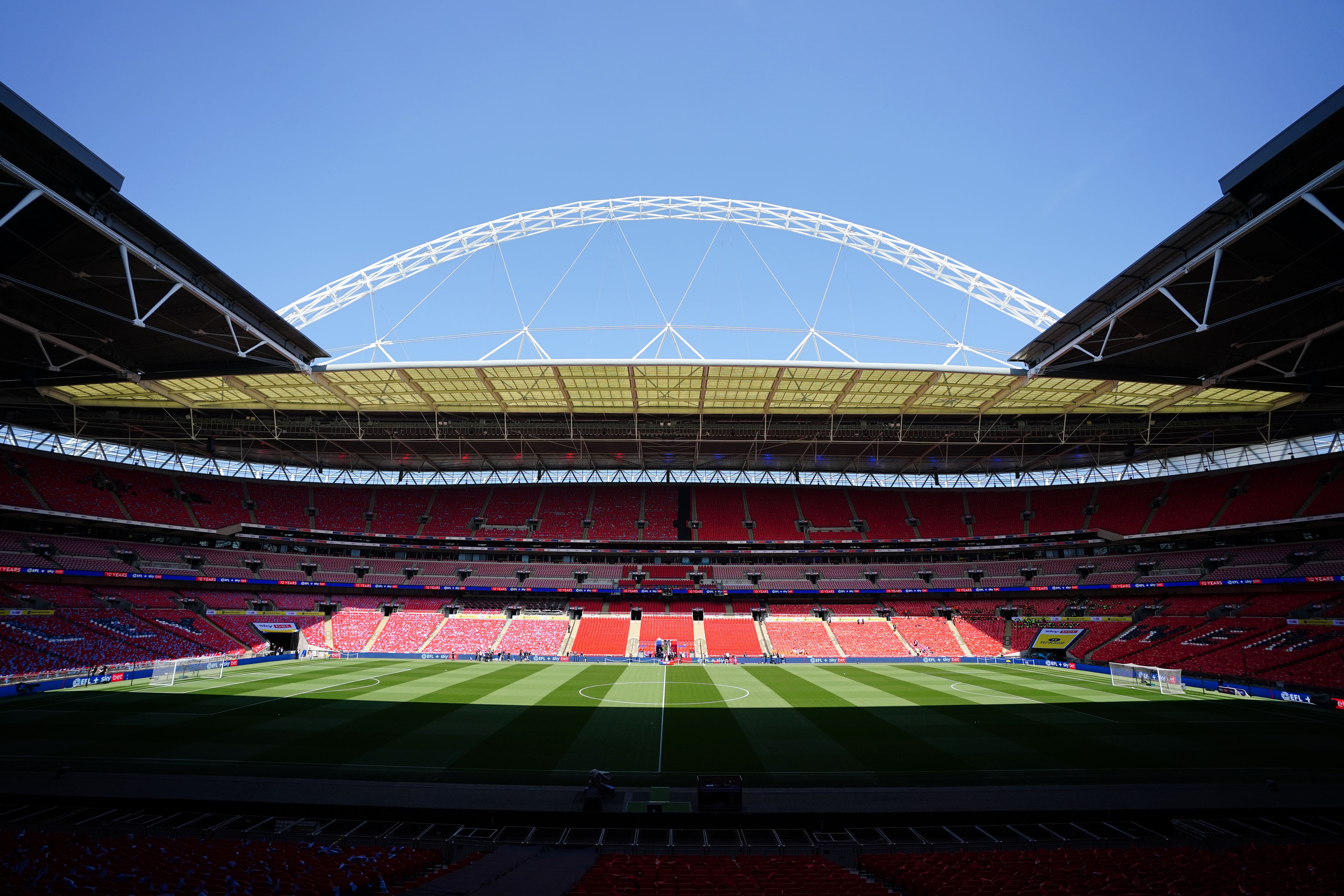UK and Ireland confirmed as joint hosts of Euro 2028
The UEFA executive committee gave the five-nation bid to stage the European Championship the official green light on Tuesday.

The UK and Ireland’s bid to host Euro 2028 has been formally approved, UEFA has announced.
Ten stadia across the five nations will host the matches in five years’ time, with analysts projecting a three billion euro (£2.6bn) boost to the host nation economies on the back of the tournament.
The bid was unopposed after Turkey withdrew to focus on a joint bid for the 2032 finals alongside Italy, and it was given the official seal of approval by UEFA’s executive committee on Tuesday morning.
Wembley is set to host the final – and potentially both semi-finals – with the other English venues included in April’s final bid submission being the Tottenham Hotspur Stadium, the Etihad Stadium, Villa Park, St James’ Park and Everton’s new ground at Bramley-Moore Dock.
Cardiff’s Principality Stadium, Hampden Park in Glasgow, Dublin’s Aviva Stadium and a redeveloped Casement Park in Belfast will also host matches.
Culture Secretary Lucy Frazer welcomed the news, saying: “I’m thrilled we’ve secured UEFA EURO 2028. It will be the biggest sporting event ever jointly hosted in the UK and Ireland.
“We will put on a brilliant tournament with fans at its heart. We will warmly welcome fans from across Europe to our islands’ shores and give people memories that will last a lifetime.
“On top of that, the tournament is expected to deliver up to £2.6 billion of socio-economic benefit across the host nations, creating jobs and opportunities.”
All five nations are expected to go through qualification for the tournament, with UEFA understood to be reserving two host nation places for any of the teams which do not make it on merit.
The UK-Ireland bid would have been the overwhelming favourite to host Euro 2028 even if Turkey had remained in the race. Senior UEFA sources have repeatedly stressed the importance of hosting another European Championship in a major market – following on from Euro 2024 in Germany – as essential to boosting UEFA’s finances in the wake of the Covid-19 pandemic.
There will still be issues for the bid team to resolve over the next five years however – with agreement still to be reached on who will fund the redevelopment of Casement Park.
Plans for a 34,000 stadium have been delayed by legal challenges and are further complicated by the lack of a functioning Executive at Stormont.
Costs have also risen from an original estimate of £77.5million to more than £100m. The GAA is part-funding the project but has not reached an agreement with Stormont over where the remainder will come from.
Tuesday’s decision means England will be involved in hosting a Euros for a third time. They hosted alone in Euro 96 and were one of 11 countries involved in staging the continent-wide Euro 2020.
The UK and Ireland associations first announced they were focusing on a bid for Euro 2028 in February last year.
It had been expected that they would bid for the centenary World Cup in 2030 but Football Association chief executive Mark Bullingham admitted at the time there were “many areas of uncertainty” with doing so, leading to the switch in focus.
Join our commenting forum
Join thought-provoking conversations, follow other Independent readers and see their replies
Comments
Bookmark popover
Removed from bookmarks